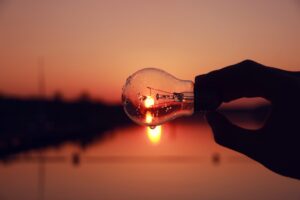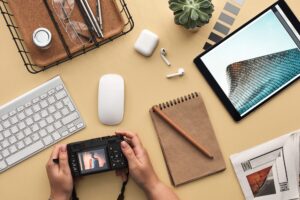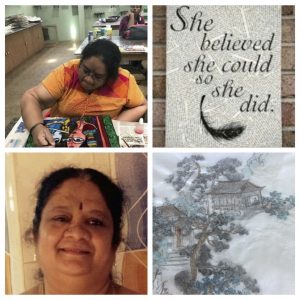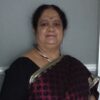
A baby gurgles for the first time and learns that a twist of the tongue makes a sound and does it repeatedly to achieve perfection. Likewise walking, running, speaking, learning languages, reading, writing, calligraphy, recitation, singing, dancing, and a plethora of skills we learn at different stages of life. All inventions are because of an innovative mind but as new inventions and technological development creep into our lives, creative ideas have taken a back seat in recent times. The younger generation seems to be depending on gadgets which dilute their originality while the older generation seems to have taken a ‘relax mode ‘attitude with the gadgets around them. As an educator, I strongly believe that it is my prime duty to create awareness about the core skills we need to concentrate on and our contribution toward nation-building.

The purpose of life is to live happily and enjoy every moment of life. To achieve our goals in life, self-analysis, development of self-confidence, and self-appreciation are necessary. We should have the zest to be lifelong learners. Everyone is creative and capable of doing something unique. From birth to the last breath, we have the opportunity to exhibit our talent, skill, and knowledge.
Let’s recall the CORE LIFE SKILLS:
Self -awareness
This enables us to understand our weaknesses and strengths. Being aware of the good points about oneself helps us to build a sense of self-esteem and self-confidence. Being aware of their weaknesses will enable us to learn more. This also helps us to utilize the opportunities available about our ability and make correct career choices.
Empathy
Being empathetic means that one can imagine oneself in the shoes of someone else i.e. a friend, parent, or others, and experience their emotions. One can understand their concerns, worries, fears, and needs and how they feel and how they work, thereby enhancing their understanding of their world of work.
Critical thinking
This is an ability to analyze information and experience objectively. It can help us recognize and assess the factors that influence our attributes and behavior, such as media and peer pressure influences, and how that can have an impact on one’s career decision-making.
Creative thinking
This contributes to both problem solving and decision making by enabling us to explore the alternatives and various consequences of actions or lack of actions. It helps us to respond adaptively and with the flexibility to situations in daily life, including professional life, even if no problem is identified or no decision is made.
Decision making
This skill is required for choosing the best amongst the various alternatives in life situations. The situation may not be the problem. But may require a choice to be made. This skill enables one to weigh the pros and cons of alternatives and choose the best option available and accept responsibility for the consequences of the decisions both personal and professional.
Problem-solving
The process of problem-solving involves various steps. It also involves identifying the problem, exploring the available alternatives, and deciding on the best possible solution.
Effective communication
The essential components of communication skills are listening and speaking skills. Body language is as important as spoken words and may even have more impact.
Interpersonal relationship
This skill is the ability to establish positive relations, which help us to relate in positive ways with the people we interact with. This may mean being able to make and keep good and friendly relationships with family members, friends, and people at the workplace which are important sources of social relationships.
Coping with stress and emotions
This involves recognizing emotions within us and others. Being aware of how emotions and stress influence behavior and being able to respond appropriately, in all our social circles.
Moving clockwise with the picture, bodily kinesthetics is to learn by doing, interpersonal is being good at analyzing people or self, verbal-linguistic is to learn by reading in detail, developing practical and logical thinking while some learn from natural instincts, while younger we learn by visually seeing or by touch and feel, some are musically oriented. All of us possess multiple intelligence skills however the degree may vary from person to person. We must identify the recessive skill and try to develop it simultaneously we must exhibit the dominant skill wherever possible. Every individual is capable of doing something unique. Whatever might be the method of learning it’s appreciable and the right skills must be exploited and utilized for personal growth.

Let’s take time to introspect ourselves and identify the skill we possess. Through a dedicated approach and by making small changes in activities day to day activities we can reform into a different person with acquired skills.
* Observe, analyze and organize information around. Every person you meet is your resource.
* Find connections, share and record ideas. Think and speak clearly, and express ideas boldly.
* Listen to directions and others’ information. Resolve conflict by listening to others.
* Read a variety of resources for fun, understanding, and knowledge acquisition.
* Be smart, take responsibility at work, and maintain work-life balance
* Manage behavior, and respect others’ views.
* Try out new methods to solve a problem.
* Enjoy Music and preserve nature.
* Stay unbiased.
* Love yourself and the world around you.
* Live and let live in peace.
Nithya Vasu, Educator

Top 3 images: pexel.com

